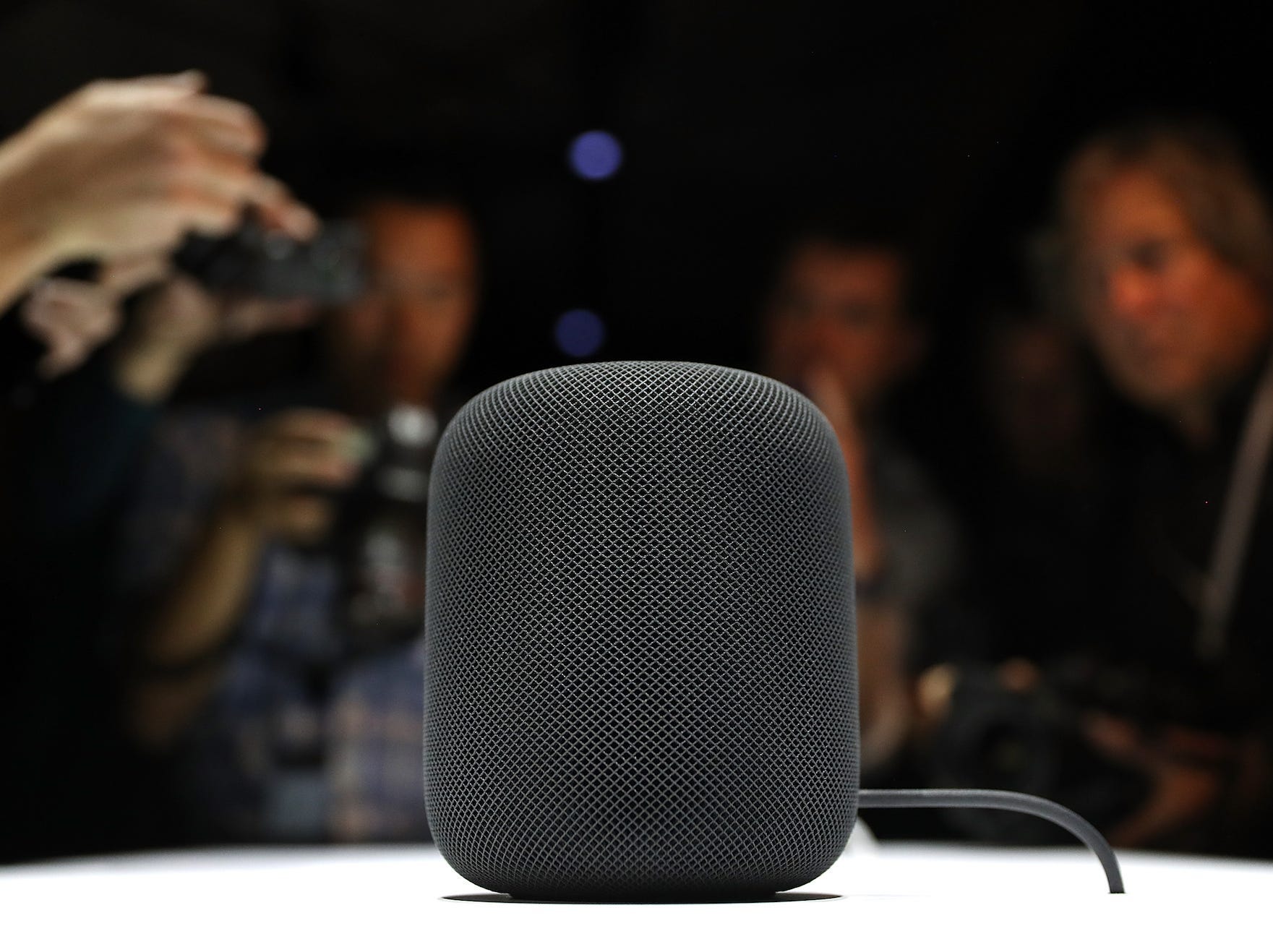
- Apple is discontinuing the original HomePod smart speaker.
- It will focus instead on the $99 HomePod Mini, which launched last fall.
- The $350 HomePod never became a consumer hit, likely due to its limited capabilities and high price.
- See more stories on Insider's business page.
Apple is killing off its $350 HomePod smart speaker, the latest high-end device Apple has discontinued this month.
The company told TechCrunch's Matthew Panzarino earlier in March that it's discontinuing the original HomePod in favor of the HomePod Mini, which debuted last fall. The smaller, $99 smart speaker has impressed critics since its launch thanks to its sound quality, lower price point, and seamless iPhone connectivity.
Apple told TechCrunch it will continue selling the original HomePod until supplies run out and that it will still provide software updates and product support for existing HomePod owners.
The original HomePod was announced in 2017 and hit shelves in early 2018. It was Apple's first attempt at high-end audio and its answer to popular products like the Amazon Echo and Google Home. But the device never became a hit with consumers, capturing only a sliver of the smart speaker market likely due to its limited capabilities and high price point.
A few months after it launched, Apple slashed production of the device and lowered sales forecasts, according to a Bloomberg report at the time.
The HomePod isn't the only luxury product Apple has killed off in the last week: The company told CNN Business that it's also discontinuing the iMac Pro, its most expensive and powerful computer. Apple launched the iMac Pro in 2017 to glowing reviews. The device was aimed at software developers and audio or visual pros and starts at $4,999.
Apple has an ambitious next decade of devices planned, according to various reports. The company is reportedly working on a virtual-reality headset aimed at encouraging developers to build VR and augmented reality apps and would lead the way for a more sophisticated AR wearable down the line.
Apple is also reportedly developing a folding iPhone, which would help it compete with its chief rival, Samsung.
Beyond consumer devices, Apple may have large-scale ambitions in the automotive world: the company is reportedly working on an electric, self-driving car that it plans to launch by 2024.
Apple may produce the car in partnership with a large automaker or may follow the same route it uses to produce its other consumer products - partnering with a contract manufacturer to avoid sinking costs into Apple-owned factories. Either way, the so-called "Apple Car" is expected to introduce a new battery design that would "radically" reduce battery costs and give the vehicle longer range.
